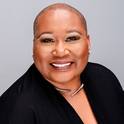Article
Buffalo's "prophet of protest" : the political leadership and activism of Reverend Dr. Bennett W. Smith, Sr.
Afro-Americans in New York Life and History
(2001)
Abstract
Recently voted as one of Western New York's most influential people for the twentieth century (Gallivan 1999), the Reverend Dr. [Bennett W. Smith, Sr.] Sr.'s own electoral and political activism clearly emanate from the ethical expressions of the social justice ministry of his late friend and comrade, the Reverend Dr. Martin Luther King, Jr. King characterized social justice in terms of "comprehensive social empowerment." He believed that freedom for African-Americans without empowerment (i.e. "Civil Rights"), land and/or other social/economic resources, was not "true" freedom (Walker 1991, 24). King's philosophy, similar to Stokely Carmichael's view of "Black Power," articulated a "call to black people to amass the political and economic strength to achieve their legitimate goals.... A call for the pooling of black financial resources to achieve economic security [as well as] a psychological call to manhood, which includes a determination to glory in blackness and to resurrect joyously the African past" (Walker 1991, 24). King's view of freedom, which articulated comprehensive social-political-economic empowerment as being "an essential part of the struggle to achieve the right relationship with God," (Walker 1991, 24), but also culminated in the passage of the Civil Rights Act of 1964 and the Voting Rights Act of 1965, which substantially ended the codification of racism in the United States (Calhoun-Brown 2000: 169). It was also the origin for Smith's ministerial influence and protest-activism during the Civil Rights Era. King's philosophy continues to influence the ensuing direction and nature of Smith's recent initiatives in faith-based community economic development projects as well.
Today, Smith explains this "dignity" is more accurately expressed in the philosophical tenets of Afrocentrism. Molefi Asante (1987), who established the Afrocentric paradigm, argues that all modern intellectual history -- albeit Eurocentric or Afrocentric -- is fundamentally culturally centered and emanates from ideological assumptions (p. 159). Given this context, an Afrocentric method is concerned with formulating a world view about the writing and dialects of oppressed people to which current literary theories can be applied that encapsulates African themes and subjects (Asante 1987: 159). Lincoln and Mamiya (1990: 7) argue that since culture is the form of religion and religion is the heart of culture, religion is expressed in cultural forms like music and songs, styles and content of preaching, and modes of worship (Lincoln and Mamiya 1990: 7). Historically, DuBois (1953) recognized the intrinsic role of religion in the center of African-American society. The "religion of the slave" viewed Christianity as a religion of the oppressed and downtrodden of society. Exposure to the biblical stories of oppression, persecution, and enslavement of the Hebrews, "God's Chosen People in the Old Testament," caused many African-Americans to identify with Jews and to consider themselves "God's Chosen People in America" (Franklin 1984, 193; [Gayraud Wilmore] 1982). Three things characterized this particular/peculiar religion -- "the Preacher, the Music and the Frenzy" with the Preacher, being the "most unique personality developed by the Negro(3) on American soil" (DuBois 1953, 190).
Smith emphatically argues that Buffalo missed the whole Civil Rights movement. He states, "Buffalo had no one that they could point to that participated in Selma, participated in Montgomery, participated in any of the movement with Dr. King as the Civil Rights movement unfolded. No one from this town participated. So consequently, they had no history of involvement [with protest against racial injustice]. No sensitivity to what was taking place among African-American people in all of the south. No involvement of clergy" (Smith 1998). In fact, two local African-American politicians told Smith that on the one trip that Rev. Dr. Martin Luther King made to Buffalo on November 9, 1967 to speak, "no Black minister would go to the airport to meet him" (Smith 1998). The two politicians had to go alone. Smith considered it a "special mission by God" to come to Buffalo. He recalls, "God equips us with what we need" because "He [God] had plans for him" (Allen 1980: A7) to eradicate this political inactivity among the Buffalo's African-American community.
Keywords
- Activism,
- Activists,
- African Americans,
- Black culture,
- Blacks,
- Civil rights,
- Culture,
- Elections,
- Human rights,
- Minority & ethnic groups,
- Politics
Disciplines
Publication Date
July, 2001
Citation Information
Sherri L. Wallace. "Buffalo's "prophet of protest" : the political leadership and activism of Reverend Dr. Bennett W. Smith, Sr." Afro-Americans in New York Life and History Vol. 25 Iss. 2 (2001) p. 7 - 43 ISSN: 0364-2437 Available at: http://works.bepress.com/sherri-wallace/11/
